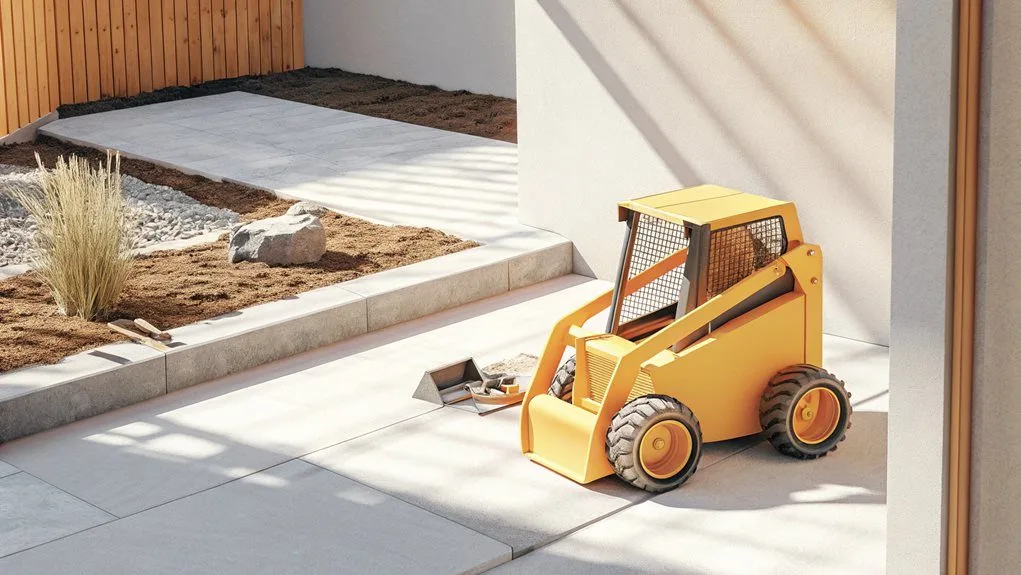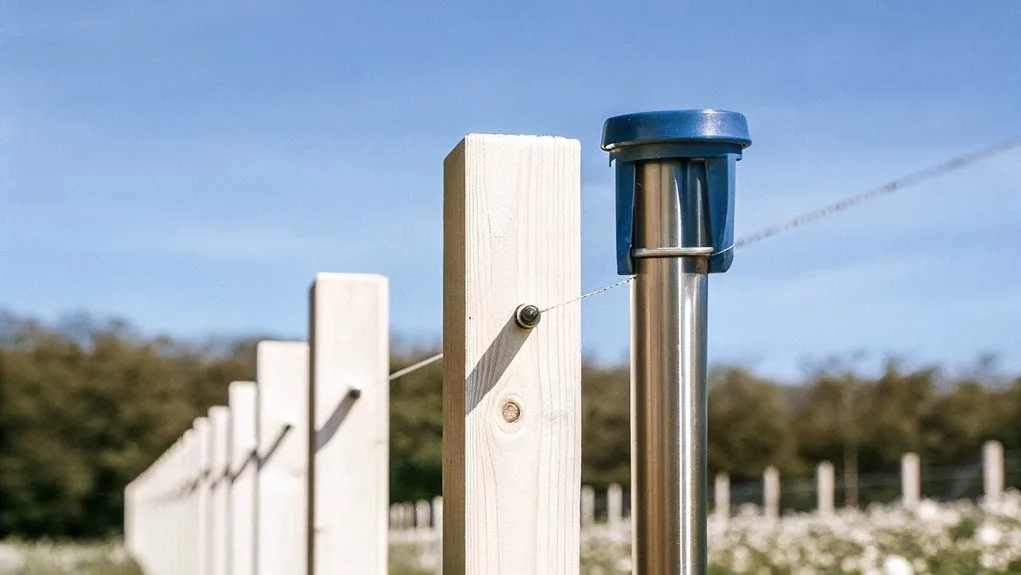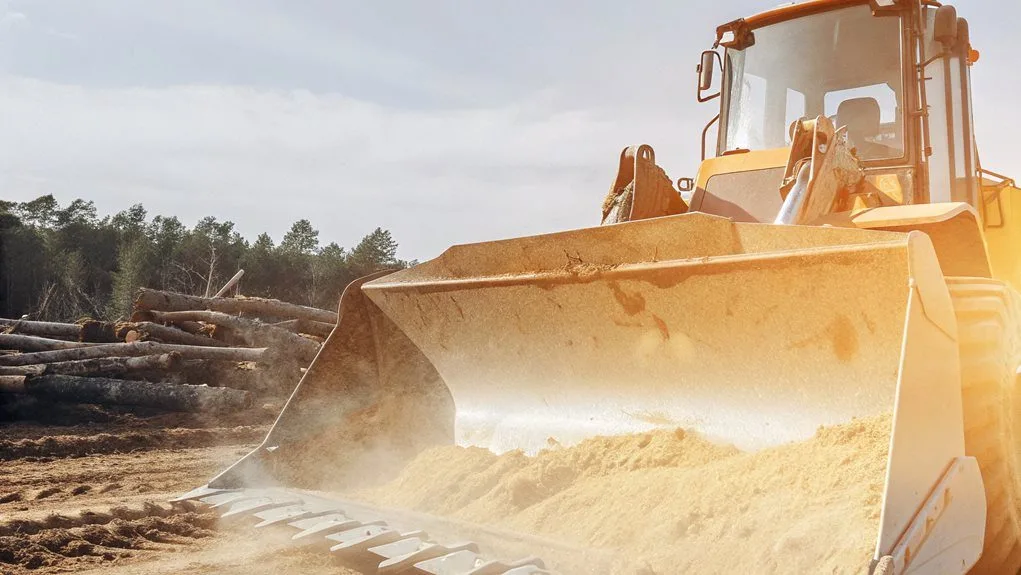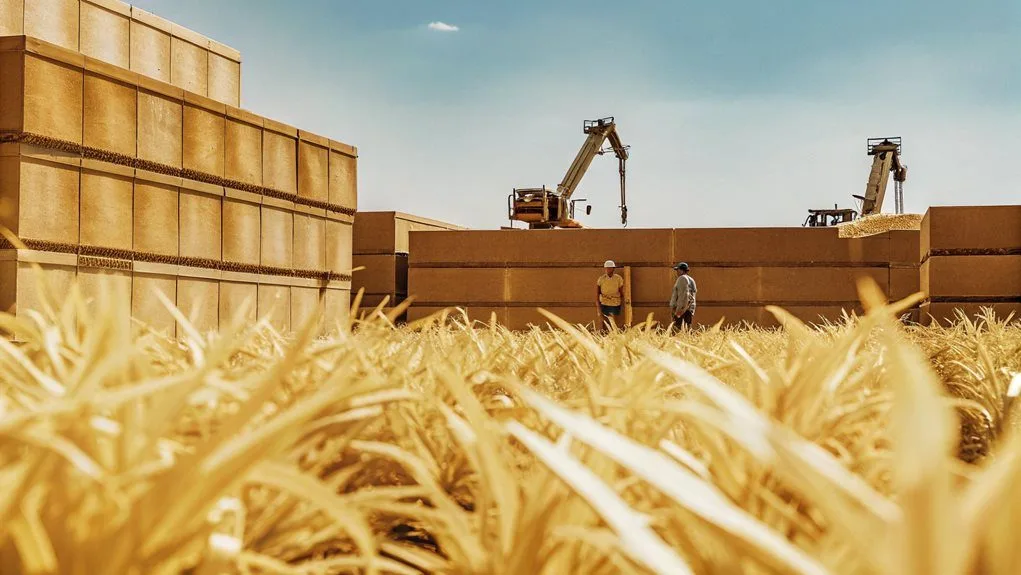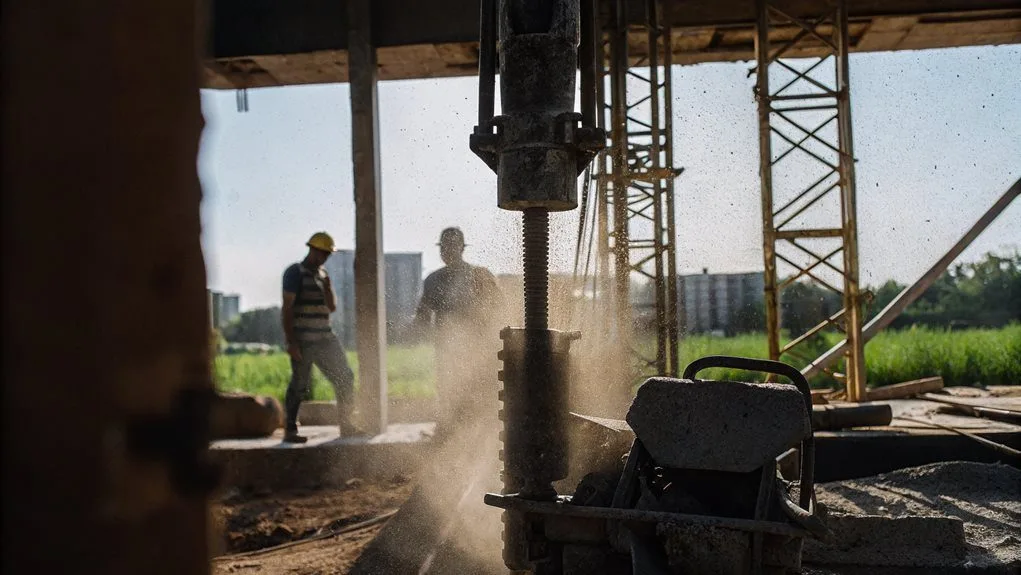So, you want to hire a forestry mulcher? Well, you’ll need more than just a pulse! First, you’ve got to pick the right machine—think about power and size. Don’t forget safety; keep the crew at least 90 metres away. Then there’s the legal stuff—permits and insurance aren’t just optional.
Finally, choose between DIY, which may ruin your weekend, or hiring professionals who do this in their sleep. Consider your project requirements carefully, as the terrain and vegetation type will determine the most suitable equipment. Stick around, and you’ll discover more details about making the right choice for your forestry needs!
Key Takeaways
- Obtain necessary permits, including environmental and special use approvals, before hiring a forestry mulcher.
- Ensure compliance with SANS standards regarding ROPS, FOPS, and local regulations for safe operations.
- Hire licensed and certified operators to guarantee safe and efficient use of the equipment.
- Consider rental costs that typically range from R22,000 to R55,000 per day, plus additional fees.
- Evaluate the machinery’s compatibility with the hydraulic system, weight, and cutting power for optimal performance.
Equipment Selection Criteria
Selecting the right equipment for your forestry mulching project can feel like trying to find a needle in a haystack—where the haystack is made of overly complicated machinery standards, and the needle is, well, a decent mulcher.
You need a carrier that matches the mulcher’s hydraulic system and power demands.
A bigger mulcher isn’t always better; it’s got to fit your machine.
And hey, make sure it won’t topple over—weight matters, too!
Then there’s cutting power and speed to evaluate because no one’s got time for slow progress, right? Additionally, it’s important to consider that mulchers with fine shredding capabilities promote quick decomposition. Moreover, choosing the right mulcher can significantly impact project success.
Let’s not forget those eco-friendly options.
You want good mulching quality without wrecking the environment.
Operational Considerations
Alright, let’s talk operational considerations.
You can’t just toss a mulcher on any slope and pray for the best—slope limitations matter! Additionally, you should ensure that the selected mulchers are adaptable to the carrier’s hydraulic power for efficient operation. Plus, if you think you can skip operator training and magically become a mulching expert, think again; trust me, you don’t want to learn those lessons the hard way. It’s crucial to match the machine’s hydraulic performance to the attachment requirements for optimal functionality.
Slope Limitations Assessment
Regarding mulching on slopes, you’ve got to know your limits—literally.
Your rubber-tyred mulcher might prefer to stay on slopes under 35%.
Want to push it a bit? Track mulchers can handle up to 40%.
Feeling adventurous? Specialised equipment can tackle steep slopes—up to 50%—but only if you’ve done your homework first.
Think of it as a rollercoaster ride for your mulcher.
Rocky or uneven ground? You might just be asking for trouble, so keep an eye on wear and tear.
And if those trees are dense? Well, good luck with efficiency! Proper machine size helps to optimize maneuverability in tough landscapes.
Using forestry mulching as an eco-friendly method will also enhance soil health during the operation.
Remember, the right tool makes all the difference.
Safety Protocol Compliance
It’s no secret that safety protocols aren’t just suggestions; they’re essentials. You wouldn’t want to be that person without a helmet, right? Imagine this: you’re mulching away whilst debris takes flight, and your colleagues are standing just a little too close. Yikes. That’s why keeping folks 90 metres back is a no-brainer. Oh, and let’s not get started on rocky ground—it’s a recipe for disaster. You’ve got to have FOPS installed on that machinery like it’s a life raft. Operator Protection Measures are critical to ensure everyone is safe from the operational hazards. Additionally, make sure that all operators are familiar with proper Disc Mulcher Safety protocols to minimize risk. And don’t forget your emergency kit! You never know when someone might need a plaster. Seriously, isn’t it mad that the biggest hazard is flying objects? Stay safe, keep compliant, and let those mulchers do their thing without chaos!
Operator Training Necessity
You might think safety protocols are all that matters, but let’s not forget about operator training—because trusting someone without the right skills is like letting a toddler handle the remote.
Seriously, it’s a recipe for disaster.
First off, operators need to be at least 21 and some need a valid PrDP to get started.
The learning doesn’t stop there; they’ve to pass knowledge tests and work under supervision initially.
Ever tried using a forestry mulcher without knowing its capabilities? Good luck with that!
Manufacturers offer various training options, from hands-on to virtual.
So, let’s get real—investing in solid training isn’t just smart, it’s essential.
It keeps everyone safe and means less downtime, which we all can agree is a win.
Hire Options and Costs
Regarding hiring forestry mulchers, you might feel like you’re traversing a maze.
Don’t worry; you’re not alone!
You have options—from skid-steer mulchers to high-flow powerhouses.
Rentals come in all flavours, like daily, weekly, or monthly experiences, depending on your timeline.
Rental options are as varied as your needs—choose from daily, weekly, or monthly to fit your timeline!
Suppliers such as local plant hire companies are ready with various prices, from R22,000 to R55,000 a day.
Yes, it can get pricey!
And hey, watch for those sneaky extra fees for insurance and transport; they tend to pop up like weeds.
So, do you really want to own a mulcher?
Hiring could save you from a R730,000 commitment.
Just don’t forget—you pay more for flexibility, but at least you don’t need a storage shed!
Regulatory Requirements
So, you think hiring a forestry mulcher is as easy as picking a rental car?
Not quite.
You’ll need permits and approvals, insurance, and some fancy compliance standards to guarantee you’re not just playing fast and loose with legalities—unless you enjoy fines and court dates, of course.
Permits and Approvals
Traversing the maze of permits and approvals for forestry mulcher hire can feel like you’re trying to solve a Rubik’s Cube blindfolded. Seriously, who knew a business licence was just the tip of the iceberg?
You’ll need environmental permits to ensure Mother Nature doesn’t file a lawsuit and special use permits if you fancy mulching in sensitive areas.
And let’s not forget Department of Employment and Labour compliance—because safety first, right?
Municipal zoning permissions? Yeah, you better check those too, or you’ll be mulching in the wrong property.
Add in noise ordinances and waste management permits, and you’ve got a real party.
So, gear up and get ready for a paperwork marathon.
After all, what’s more fun than chasing red tape?
Compliance Standards
Compliance standards for forestry mulcher hire aren’t something you can just ignore, unless you enjoy chaos. Seriously, who doesn’t love a good SANS standard? You need to follow the Department of Employment and Labour’s guidelines, ensuring safety practices are up to scratch.
Think ROPS and FOPS—those fancy protective structures aren’t just for show, you know! And don’t forget about local regulations; they’re not optional just because you’d like them to be.
Equipment must meet specific power and functionality requirements too. It’s like dating—if the mulcher doesn’t meet your expectations, it’s time to look elsewhere.
Insurance Considerations
Regarding hiring a forestry mulcher, you can’t just skip over the insurance requirements—unless you’re aiming for a national treasure of chaos and misfortune.
You’ll need general liability coverage, because who wants to be liable for accidents?
Workers’ compensation is a must, too, to cover injuries. Imagine that—you can’t just wish employee mishaps away.
Then you’ve got cargo insurance, protecting your precious timber in transit. Remember inland marine coverage for your mulcher itself; without it, you’re living on borrowed time.
And let’s not forget the pesky minimum premiums that can easily hit R18,000. Seriously, who knew borrowing trouble had such a high ticket price?
DIY vs. Professional Hire
So, are you feeling daring enough to tackle forestry mulching on your own?
Sure, owning a mulcher sounds thrilling until you see those price tags in rand.
Plus, you’ll need some serious skills to avoid turning your garden into a scene from a horror film.
And let’s not forget the time! DIY can chew up your weekends faster than a hungry mulcher.
Now, consider hiring professionals.
They’ve got the fancy equipment and know-how, zipping through your project whilst you’re binge-watching shows.
Let’s be honest: they’ll probably do it better, faster, and without wrecking your garden.
Sure, it costs money, but think of it as buying your sanity back.
Safety Precautions
Before you plunge headfirst into your forestry mulching project, let’s chat about safety precautions—because who wouldn’t want to avoid a trip to hospital, right?
First off, you really need that Personal Protective Equipment (PPE). Can’t hurt to keep your limbs intact!
Whilst you’re at it, inspect your machine; you wouldn’t want it to throw debris like a preteen at a birthday party.
Can we talk about establishing a 100-metre no-fly zone for bystanders? The last thing you want is someone getting a wooden souvenir.
And don’t forget to identify underground utilities! Trust me, nobody enjoys a surprise electric shock.
Stay sharp, gear up, and operate safely—after all, you’re out there doing important work. Let’s keep it that way, yeah?
Conclusion
So, you’re ready to tackle that overgrown jungle in your backyard, huh? Just remember, hiring a forestry mulcher isn’t as simple as calling for takeout. You’ve gotta think about the right equipment, local regulations, and—don’t forget—safety! Are you really willing to face that behemoth alone? Whether you’re a DIY daredevil or leaning on the pros, just make sure you’re fully prepped, or you might end up with more chaos than you bargained for. Good luck!

